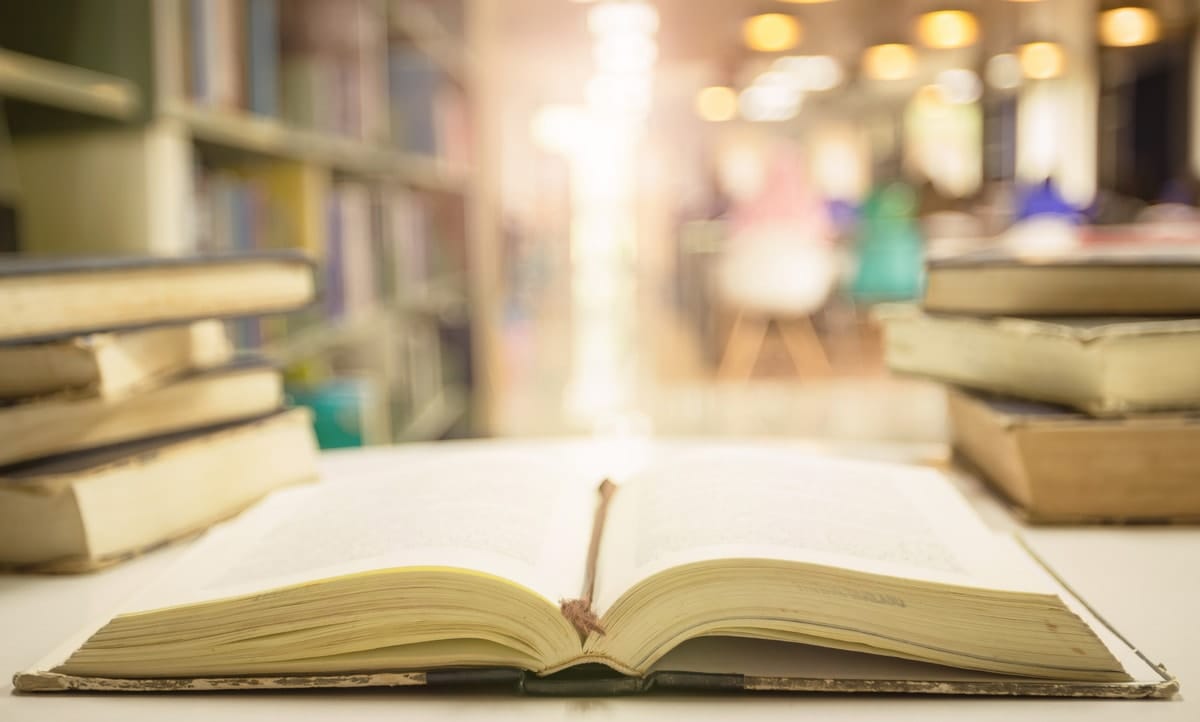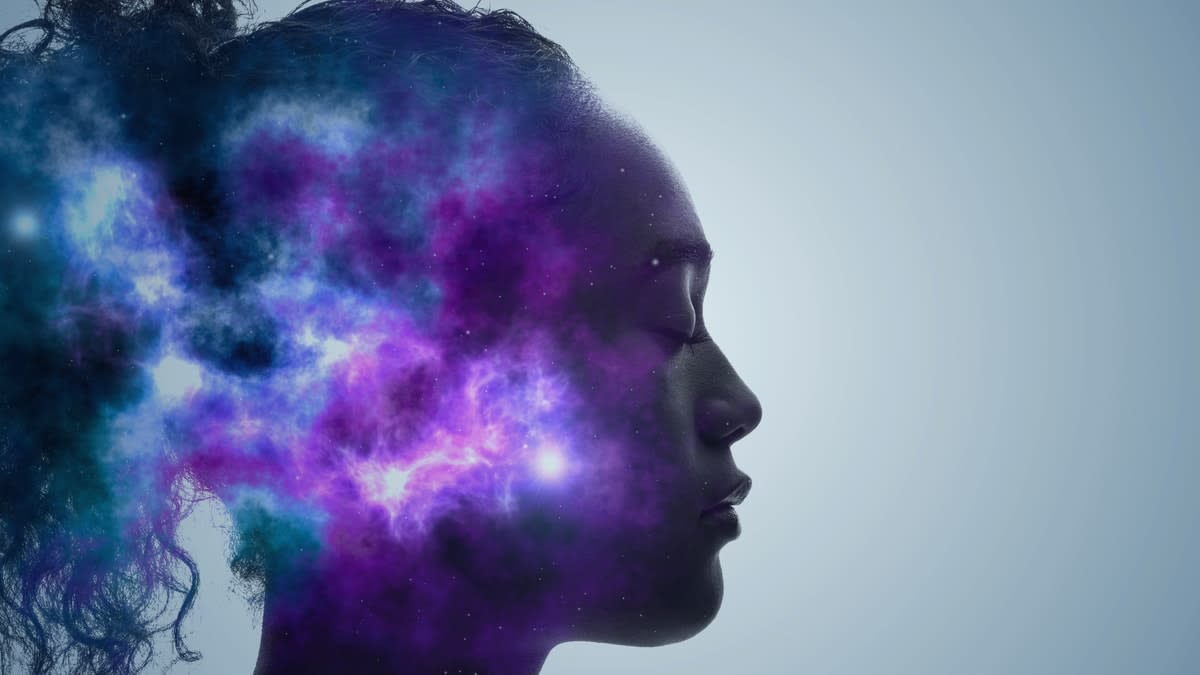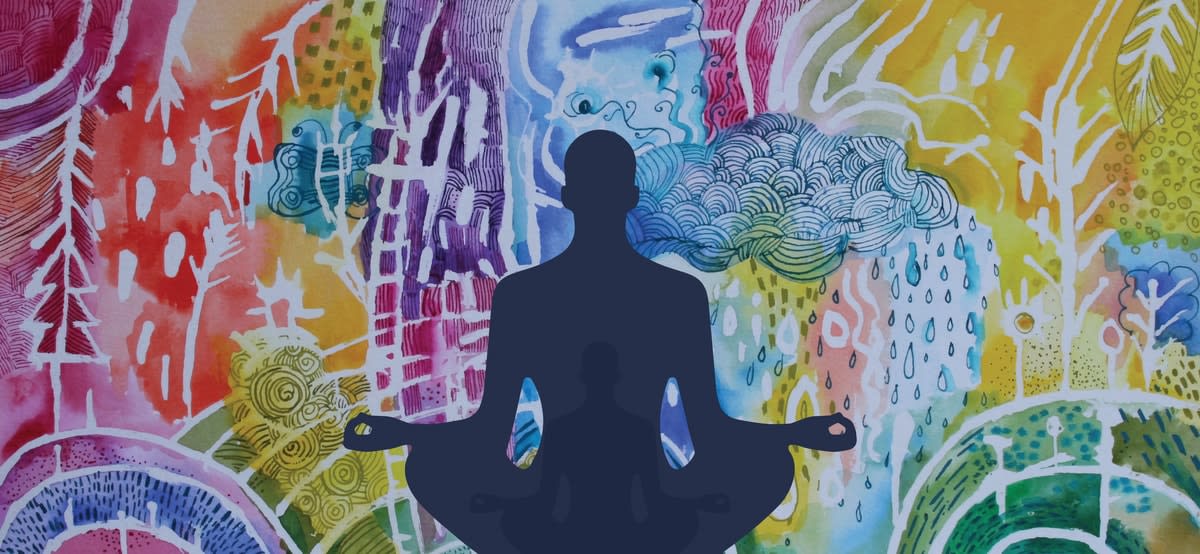
Reality is conversational, according to the Anglo-Irish poet David Whyte. Another way of putting this is to suggest that consciousness, whether at the most elementary or the most profound level, is generated by interaction and exchange.
As I reflect on over 34 years’ teaching at Monash, this has been my experience of the world. In teaching history and religious studies, I’ve learned so much from other teachers and students.
The notion I’ve always invoked within a secular university is that of religious literacy, just as we speak of financial and digital literacy. This is not just about recognising a few key words and images from different religions. It’s about understanding both their conceptual framework and how they’re interpreted within specific social and historical contexts.
In 1988, my wife and I travelled with a group of pilgrims to an ashram in Kolkata, centred around a guru, Thakur Balak Brahmachari. It was a transformative experience, and so difficult to put into words. The chanting was continuous.
While his discourse included Hindu imagery, he saw himself as a prophet, criticising ritualism and promoting the need to listen to the voice of conscience, and for consciousness to manifest itself as justice, health and wellbeing.
Paradoxically, this experience in India taught me much about medieval Christianity – for example, the capacity of a holy man or woman to cross social boundaries within a hierarchical society.
I recall a conversation I had with a pilgrim (one of the tens of thousands who came each day) who initially tried to sell me some silk. We then got chatting about poetry. He was a Muslim who loved coming to this ashram. His favourite poets were Rabindranath Tagore and Milton. He demonstrated a religious literacy, far broader than anything I had encountered in either Europe or Australia.

The Vedantic and Kashmir Shaivite schools of Hinduism both invoke the notion of consciousness as the foundation of all reality. Here consciousness becomes a way of speaking about interconnectedness. The individual has to merge with a universal self – the atman.
Meditation offers a path to free ourselves from false attachment and connect to deeper consciousness. Buddhism draws on this sense of the interconnectedness of all things, but denies that there’s any underlying reality to the self.
Read more: Coronavirus: Plagues, pandemics, and religious ramifications through history
Different religions offer different philosophical frameworks by which they describe the process of understanding. Monotheist traditions speak of revelations to a community as well as to an individual. The thrill of teaching world religions has been to learn from both specialists and students about different ways of understanding the world, and discussing how these ways are shaped by specific cultural and political contexts.
Another perspective on reality is that of Indigenous tradition. I’m indebted to John Bradley, of the Monash Indigenous Studies Centre, for explaining to me the immense treasure of songlines – orally-transmitted sacred texts – which he’s been transforming through wonderful, digitised presentations, chanted and translated by the last remaining speakers of particular languages.
Songlines speak about the journey of a spirit ancestor to connect a community to the land. John prompted me to compare these songlines to orally-transmitted stories told about the travels of saints of early medieval Ireland. These stories about saints or spirit guides themselves retell stories and evoke journeys that are both collective, whether of the Jews or Muslims, and individual, speaking about Moses, Jesus and the Buddha.
Read more: Saving language: The power of ancient Indigenous oral traditions
Whatever our background, we all need a pool of stories, whether about Job, Jesus, or the Buddha, to help us survive a difficult world.
My own expertise, my own songline as it were, is in the Latin Christian tradition. In the late 1980s, I discovered the writings and music of Hildegard of Bingen, a 12th-century visionary nun who was then only just becoming known.
Hildegard shared Abelard’s interest in the creative power of the Holy Spirit, but with a much greater sense of the dynamism of the natural world. Her understanding of the word spiritus or “breath” offers insight, I suggest, into what other traditions might call consciousness.
In early life, Hildegard was fascinated by the powers of plants and stones, but began recording her ideas only in mid-life after a transformative experience. She says she understood in a flash the true meaning of the scriptures and the philosophers.
She speaks of the shadow of the living light illuminating her whole being, the marrow of her bones as much as her heart and brain. She speaks about the holy spirit, the holy breath, as breaking into her consciousness to reveal that spiritual redemption involved the restoration of viriditas or green-ness, itself a manifestation of this life-giving holy spirit. For her, the entire universe was alive, sustained by divine love, presented as a cosmic fire.
Read more: Body politics: Two popes on rethinking Christian traditions
Another medieval perspective on the experience of awakening consciousness is offered by Hildegard’s near contemporary, Hugh of St Victor, in his Didascalicon:
Meditation takes its start from reading, but is bound by none of reading’s rules or precepts. For it delights to range along open ground, where it fixes its free gaze upon the contemplation of truth, drawing together now these, now those causes of things, or now penetrating into profundities, leaving nothing doubtful, nothing obscure. The start of learning, thus, lies in reading, but its consummation lies in meditation; which if any man will learn to love it very intimately and will desire to be engaged very frequently upon it, renders his life pleasant indeed… From this it follows that in meditation is to be found the greatest delight. (Translation Taylor, pages 92-93).
Not everyone experiences Hildegard’s flashes of revelation. In this image of the human brain, we see a standard medieval understanding of how knowledge begins in the senses, rises through the imagination, to reason which shifts the evidence of the senses, the experiences of things.

There are many ways of speaking about consciousness and contemplation, across different cultures. While none of us can know everything, I would argue that a basic level of religious literacy is fundamental to any civilised society.
We need to know the stories that make us human and give us meaning, whether about Job or the Buddha, Jesus or the Prophet, and to respect the way each tradition relates their spirit guide to the framework of wisdom.
They each have their own versions of sacred teaching, always retelling their stories as society and the planet evolves.
Whatever our background, we all need a pool of stories, whether about Job, Jesus, or the Buddha, to help us survive a difficult world.
Religions cannot be dismissed with glib generalisations. Fundamentalism must be countered by showing how different songlines can co-exist and learn from each other.
Meditation, whether through a mantra or a visual image, leads to contemplation. Stilling the mind removes us from unnecessary anxieties, but should also lead to compassion for our neighbour and our planet.
We need to respect the goal of wisdom, manifest in different disciplines and religious traditions. We still keep this notion in acknowledging that a “doctor of philosophy”, meaning learned in the love of wisdom.
In the medieval period, philosophy was not a specific discipline, like logic, metaphysics, natural science, music and literature. As Pierre Hadot explains in a wonderful book, Philosophy As a Way of Life: Spiritual Exercises from Socrates to Foucault, philosophy was not a discipline, but a vocation that could be pursued in many different ways.
Resilience in the face of adversity
This isn’t the first time that education in the humanities has been through such a crisis, just as COVID-19 isn’t the first pandemic to ravage the planet.
Big changes are underfoot, and we cannot clearly see our way through. Whatever the discipline in which we teach, we must remember that we’re teaching students not just practical skills about how to argue and to communicate with others, but to explore questions of identity, the meaning of life, and how suffering can be overcome.
Even when the situation gets tough, do not lose heart. Read The Book of Job, to see how things can always get worse, and yet we find ways of surviving.
The establishment of Monash’s new Centre for Consciousness and Contemplative Studies, from a very generous philanthropic grant, offers genuine opportunities for new ways of thinking. I hope it can interact with other communities of learning within the School of Philosophical, Historical and International Studies, the University, and the wider community.
I also hope that part of its mission will include encouraging awareness of the continually evolving wisdom traditions of humanity. It’s only through dialogue, conversation and interaction that we’ll begin to learn about the multiform realities that shape our world.





